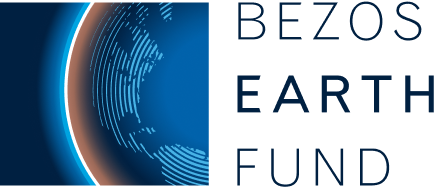On July 9, the AI for Climate and Nature Grand Challenge team hosted a virtual AI panel discussion. The panel provided an overview of the opportunities, benefits, and challenges of implementing AI solutions for climate and nature. Dr. Amen Ra Mashariki from the Bezos Earth Fund was joined by AI experts Lauren Bennett from Esri and Patrick Beukema from AI2 to answer questions from the Grand Challenge team.
Watch the session recording and continue reading for highlights from the event.
Highlights from the discussion
During their conversation, the panelists discussed high-impact but overlooked AI opportunities, the challenges of using AI to address environmental problems, and existing barriers to scalability and implementation.
By the panel’s end, the speakers left attendees with several key takeaways:
Go from big ideas to big impact
“The takeaway here is we want to go from big ideas to impact. For your initial submission, go ‘big ideas.’ Don’t be hampered by any questions around technology. Force the technology to meet you where you are. Force the AI to be where you are in terms of your big ideas.” – Dr. Amen Ra Mashariki, Director of AI and Data Strategies at the Bezos Earth Fund
Collaborate to tackle big problems
“The bigger questions aren’t going to be solved by the climate and nature folks or the AI folks all by themselves. The biggest opportunity is for us to finally get to a point where we’re building collaborative teams that are able to tackle the big problems that our world is facing.” – Lauren Bennett, Director of Spatial Analysis and Data Science at Esri
Put stakeholders at the center
“Put whoever the stakeholders are at the center and design for them from the outset. That ends up being a very different way of thinking and a very different way of building AI than what is the norm.” – Patrick Beukema, Artificial Intelligence Engineer at AI2
Enter the Grand Challenge by August 13, 2024
Potential applicants are encouraged to read more about the Grand Challenge and browse the curated resources. They can also review the selection criteria and explore the submission form. Phase 1 submissions are due by 5:59 p.m. Eastern Time (9:59 p.m. UTC) on Tuesday, August 13, 2024.
*Please note that this blog post was updated on July 26, 2024, to reflect the submission deadline’s extension to August 13, 2024.

